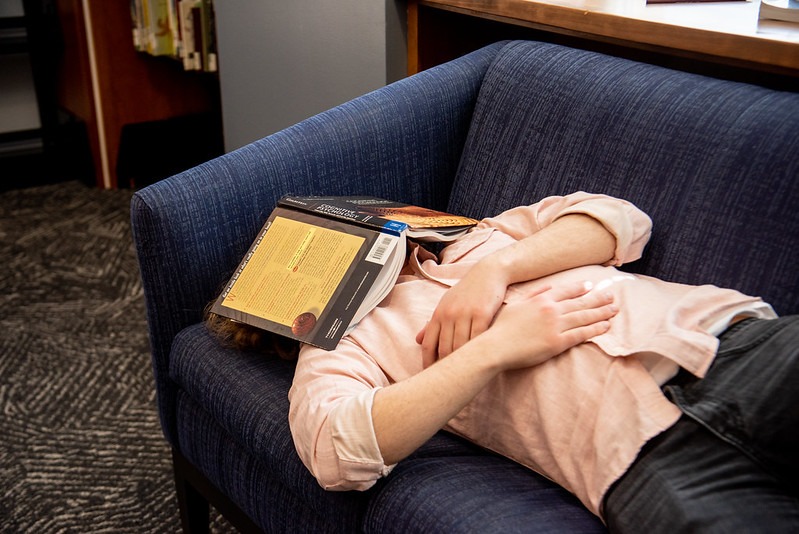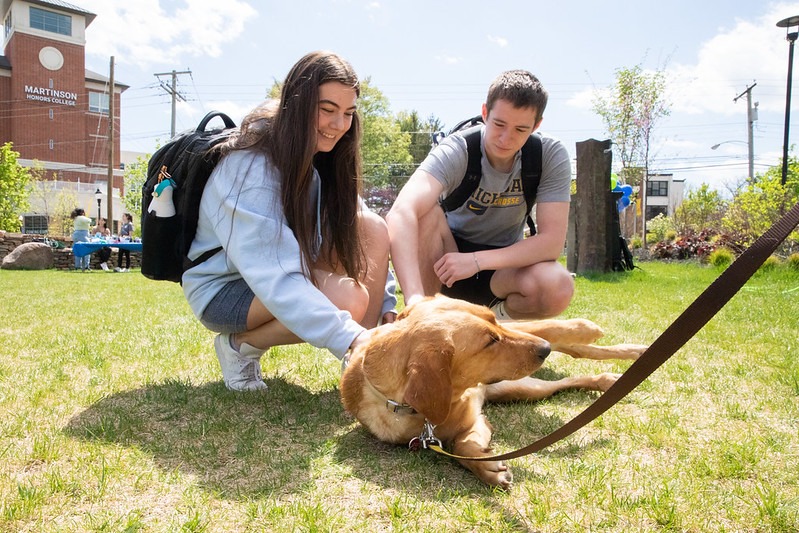Part of a series with Rowan University’s Wellness Center, this collaboration aims to educate students about personal well-being options. For further updates, follow @rowanuwellness on social.
Written by Wellness Center intern Amya Dickens, psychology major

What is Burnout?
Burnout is a state of chronic stress and exhaustion caused by academic and personal demands. Leah Rockwell, LPC, LCPC, defines it as feeling overwhelmed, disconnected, and academically ineffective. Unlike typical stress, burnout leads to mental exhaustion, cynicism, and a lack of motivation. Common signs include fatigue, poor academic performance, substance use, and detachment.

My Experience with Burnout
At first, I thought I was just stressed—constant fatigue, headaches, and a messy room. Instead of resting, I buried myself in work, convinced I was handling it all. It wasn’t until I was placed on academic probation that I realized something had to change. I needed to rebuild my habits to regain control of my life.
Resources to Rebuild Balance
Overcoming burnout starts with recognizing its impact on your motivation, health, and focus.
Rowan University offers resources like Counseling & Psychological Services (CPS) for mental health support and Student Health Services (SHS) for overall wellness. Academic advisors can help manage coursework, improve time management, and connect you with campus support—schedule an appointment via the Rowan Success Network (RSN) or call 856-256-4459.
Self-Care Steps to Restore Balance
Prioritizing sleep, balanced nutrition, and movement can restore energy, while setting boundaries—like taking breaks, avoiding late-night cramming, and engaging in enjoyable activities—prevents burnout from returning.

But self-care is also about intentionality. Start by checking in with yourself daily. Ask: How am I feeling physically and emotionally? Journaling or using a mood-tracking app can help you spot patterns before burnout takes hold again. Even five quiet minutes between classes or a tech-free lunch can give your brain a reset.
Build micro-breaks into your routine. These aren’t hours-long escapes—they’re small pauses that give your body and mind a moment to breathe. Step outside for some fresh air, listen to your favorite music, or stretch between tasks. These short breaks help you reset your focus and reduce tension throughout the day.
Finally, give yourself permission to say no. Your time and energy are valuable. Whether it’s declining extra shifts, stepping back from an overcommitted club schedule, or taking one less course load next semester, boundaries are an essential part of healing. When you make room for rest and joy, you’re not falling behind—you’re choosing sustainable success.
Recovering from burnout is a process, not a quick fix. Be patient with yourself as you rebuild. With the right tools, support, and mindset, you can regain control of your college experience and create a healthier, more balanced life.
References
(n.d.). Counseling & Psychological Services (CPS). Retrieved February 11, 2025, from https://sites.rowan.edu/wellness/counseling/
Academic Advising. (n.d.). Academic Advising. Retrieved February 11, 2025, from https://sites.rowan.edu/student-success/advising/
Rockwell, L. (2024, march 12). College Burnout: Symptoms, Causes, & How to Deal With It. Choosing therapy.
https://www.choosingtherapy.com/college-burnout
Internship & Experiential Learning Stories
Learn how Rowan Profs go Beyond the Classroom to grow professionally, as well as personally, through internships and other experiential learning. Experiential learning includes hands-on learning opportunities provided through research, student clubs, campus leadership, student worker jobs, service-learning projects and volunteerism. In addition, Rowan’s Office of Career & Professional Development provides career support that’s more than just advice – it’s events, connections and real guidance to help students thrive after college.
Additional Student Wellness Stories
Keep reading student wellness stories to learn how Rowan Profs support their mental, physical and emotional well-being. Through Rowan Thrive, Rowan University provides a comprehensive framework designed to help students live in alignment with their values and cultivate resilience across six core areas of well-being.

